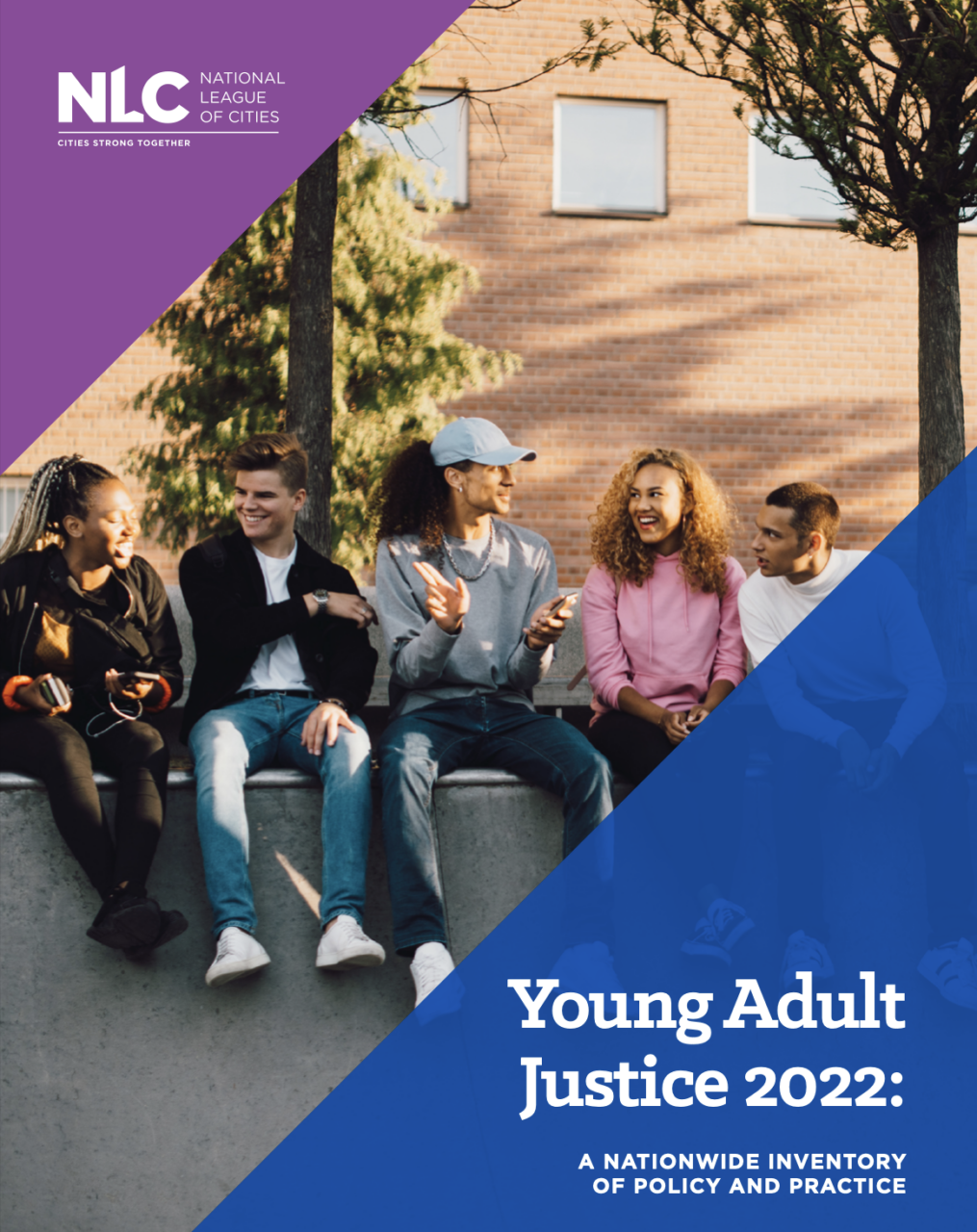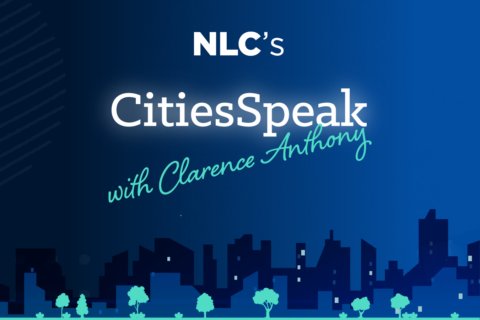A just, safe and equitable future demands that local and national policymakers, practitioners, advocates, and community leaders understand and act on young (or emerging) adults’ unique characteristics and needs. Young people between the ages of 18-26 experience disproportionately more arrests, probation revocations, and reincarcerations than the rest of the adult population. To rectify this – many cities are taking action to more properly meet their needs.
Young Adult Justice 2022: A Nationwide Inventory of Policy and Practice provides both context and examples of initiatives, policies and programs that promote stronger supports and structures for young adults across the country. The inventory (or scan) is organized by contact point- beginning with strategies to deflect young people from arrest and ending with reentry strategies to support those returning from jail or prison.
Driven by collaboration with Loyola University of Chicago, NLC supported this update to the 2017 Emerging Adult National Scan. Through conversations with city leaders, practitioners, researchers and young adults themselves the updated inventory was made possible. The Young Adult Justice Community of Practice, formed in 2020, provides a space for those committed to the work to more equitably and adequately support young adults (either through research, direct service, or policy work) to come together, share and advance this work nationally.
Key Findings of this Research:
- There is growing investment in system-centric approaches such as deferred prosecution programs, problem-solving courts, specialized probation, and specialized housing units in corrections facilities. While important and necessary parts of a strong continuum of resources for emerging adults and those working with them, policymakers must note these interventions only reach young people who are already enmeshed in the criminal legal system and cannot provide the preventative or cost-saving measures that front-end interventions can.
- The majority of system-centric approaches have narrow eligibility criteria and/or expansive disqualifying factors and thus may have a limited impact on the larger body of emerging adults who may benefit from programming or services.
- While system-delivered strategies have increased in the past five years, there continues to be significantly less investment in front-end deflection strategies, back-end re-entry supports, and programs operated by community-based / not-for-profit organizations.
- There is a gap in risk/needs assessment for young adults. Modern policy and practice emphasize the use of structured, validated risk/need/strength assessment tools to gauge the level and type of intervention that a system-involved person may need. However, there are currently no validated assessments designed specifically for emerging adults.
While there are many examples of promising initiatives within the inventory, a few to take note of are:
The hope is that this research serves as an inspiration for cities across the country to advance young adult justice and that the inventory of deflection-based, and reentry-based initiatives will grow to match that of system-level investments. Also, it is important and necessary to note that an important piece of the puzzle is the inclusivity of the Young Adult Voice. Their voices represent lived expertise and can drive all of us toward more appropriate, effective and impactful programs, policies and practices.
“Young Adults are not broken items to be fixed, but rather tools to be sharpened”
Terrance Smith, Street Smart Youth Program Atlanta, GA.









